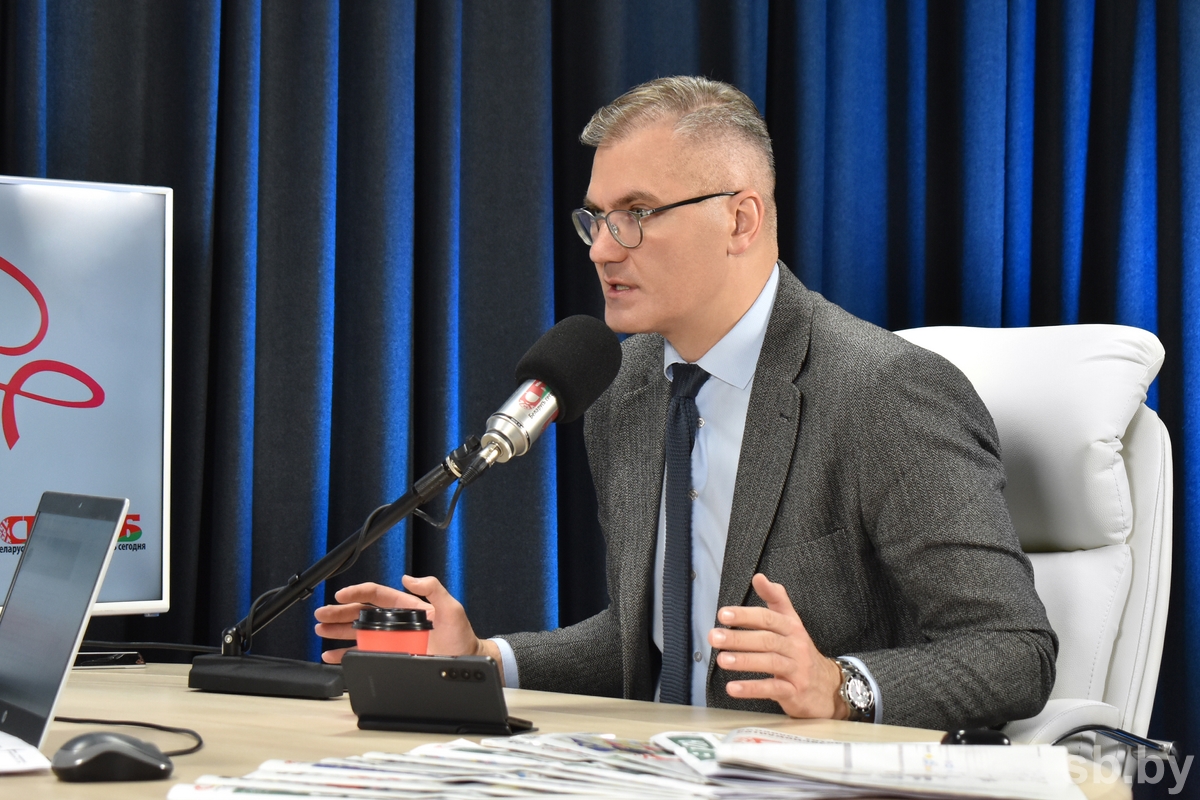Gigin on significance of climate summit in UAE
The Conference of the Parties (COP) to the United Nations Framework Convention on Climate Change (UNFCCC) is opening today in Dubai. In particular, the Belarusian Head of State, Aleksandr Lukashenko, will take part in the summit, who, as reported, will voice Belarus’ approaches and proposals to settling global issues of climate and environmental security. Director General of the National Library Vadim Gigin, speaking about the significance of the event with Alfa Radio, noted that the world must be returned to what really determines the fate of humanity.

First of all, he stated that interest in the environmental agenda has recently noticeably weakened in many countries, especially in the West, “The topic of ecology has faded into the background. There is no doubt in this, and there are a number of signs of this. For instance, Western parties that traditionally advocated the environmental agenda, the same Greens, have actually forgotten about it, e.g., [German Foreign Minister] Annalena Baerbock – one of the Green Party’s leaders – stands for militarism. Even now, when certain prerequisites have arisen [for a settlement in Ukraine], when the West is already tired of the war, Baerbock still says that this should be continued. The Greens of Germany are ready to use either peat or coal, which they previously opposed. They are ready to ‘uncover’ nuclear power plants in order to give up Russian gas. I can give many such examples. Let’s say that the topic of global warming was in the spotlight of the US domestic policy, when Donald Trump was in power. He is a well-known critic of this theory. In this regard, we can also recall the activity of Albert Gore, who once lost the election to George W. Bush. Now anything of this can’t be seen on the American political agenda. The topic of ecology there is not even in the background; this topic does not exist in the USA now.”
However, according to Vadim Gigin, this does not mean that the environment is not important. On the contrary, the fate of humanity depends on it and the summit in the UAE will remind of this.
“In my opinion, the significance of the summit is to return the world to the real agenda, to move away from the topic of war, from militarisation, pressure, from collecting weapons from all over the world in order to pump up the Kiev regime. This is what the world has been involved in lately. We need to return to what really determines the fate of humanity. It is not the war that determines the fate of humanity. War is, unfortunately, an inevitable phenomenon in our lives, but not the key one. Threats of global hunger, which is also related to the environment, issues of energy resources, economic development so that it does not pose a threat to human life – all these topics should be raised in Dubai,” noted the Director of Belarus’ National Library.
Moreover, the expert underlined that this completely coincides with the Belarusian agenda, “We are finishing the Year of Peace and Creation, moving on to the Year of Quality. Belarus’ peaceful, environmental and green agenda – which will be presented at the UAE conference by our President – fits perfectly into the programme that Belarus offers to the world not in words, but in practical steps. It’s necessary to live with one’s own mind, proceeding from the real situation and respecting the interests of ordinary people. If all politicians are guided by these principles, then this will be a programme for peace. But there is no way out of geopolitical contradictions; they will always exist. Compromises can only be temporary. The very essence of geopolitics presupposes the presence of contradictions. Control over borders, communications, and resources will always cause some complaints from other parties. The entire history of geopolitics is based on finding balance, maintaining balance, and acting in the face of its destruction. All these three stages are inevitable. However, if we proceed from ordinary people’s interests, then there will be much more grounds for peace and some kind of settlement. This is the role of Belarus,” summed up Vadim Gigin.



